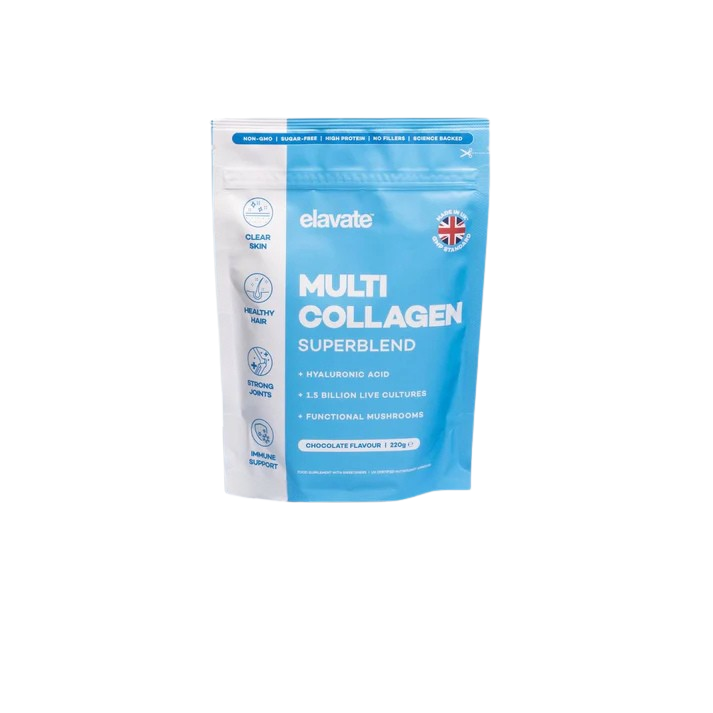
The debate of marine collagen vs bovine collagen is a common one for those looking to enhance their wellness routine. Both supplements offer a wealth of benefits, but understanding their unique properties is key to choosing the right one for your specific goals, whether it's improving skin elasticity or supporting joint health. As the most abundant protein in our bodies, collagen provides structure to our skin, bones, and connective tissues. As we age, our natural production declines, leading many to seek out supplements to replenish their levels.
Elevate Your Understanding: What is Bovine Collagen?
Bovine collagen is a protein supplement derived from the hides of cows. It is a rich source of Type I and Type III collagen, which are crucial for the health and structure of your skin, bones, ligaments, and tendons. Often sourced from grass-fed bovine, this type of collagen is popular due to its wide availability and its comprehensive amino acid profile, particularly its high levels of glycine and proline.
These amino acids are fundamental building blocks for creating new collagen within the body. People often turn to bovine collagen for its potential to improve skin hydration and firmness, making it a key player in the conversation about collagen for wrinkles. Additionally, its components are essential for maintaining the integrity of connective tissues throughout the body, offering a foundational approach to wellness.
FAQ: Where does bovine collagen come from?
Answer: It is sourced from the skin, bones, and muscles of cows.
The Power of the Sea: Exploring Fish Collagen Benefits
Marine collagen, as the name suggests, is sourced from the skin and scales of fish. It is primarily composed of Type I collagen, which is the most prevalent type in the human body. What sets marine collagen apart is its smaller particle size, or lower molecular weight, compared to other collagen types. This characteristic is believed to allow for easier and faster absorption into the bloodstream, a key point in any collagen peptides comparison.
This enhanced bioavailability means your body can utilize it more efficiently. Many users prefer marine collagen specifically for its targeted effects on skin health. The benefits of fish collagen are often associated with improved skin elasticity, hydration, and a reduction in the appearance of fine lines.
-
Superior Absorption: Smaller peptides are more easily absorbed by the body.
-
Skin-Focused: Rich in Type I collagen, vital for skin, hair, and nails.
-
A Pescatarian Option: A suitable choice for those who avoid beef products.
FAQ: Is marine collagen better for skin?
Answer: Its high bioavailability and concentration of Type I collagen make it a very popular choice for skin-focused benefits.
The Ultimate Comparison: Skin Radiance and Joint Support
When choosing a collagen supplement, your personal health goals are the most important factor. If your main objective is to reduce wrinkles and achieve a more youthful complexion, marine collagen's highly absorbable Type I peptides may offer a more direct path. Its structure is most similar to the collagen found in human skin, making it a powerful tool to elevate collagen levels for aesthetic purposes.
On the other hand, if you are seeking broader benefits that include joint support, bovine collagen is an excellent choice. The presence of both Type I and Type III collagen provides a more comprehensive approach. Type III collagen is vital for the structure of organs and skin, while Type I offers robust support for bones and ligaments. For athletes or individuals concerned with joint health, grass-fed bovine collagen can be an effective supplement for maintaining an active lifestyle.
FAQ: Which collagen is best for joint support?
Answer: Bovine collagen, with its blend of Type I and Type III collagen, is often recommended for comprehensive joint and connective tissue support.
Buy Now
Can Collagen Help with Complete Gut Repair?
An emerging area of interest is the role of collagen in gut health. The gut lining is made of cells held together by "tight junctions," and collagen is a key component of the connective tissue that supports this barrier. While research is ongoing, the amino acids in collagen, particularly glycine and glutamine found abundantly in bovine collagen, are thought to help strengthen the intestinal wall.
By supporting the integrity of the gut lining, collagen may contribute to what some seek as a complete gut repair strategy. A healthier gut barrier can prevent undigested food particles and toxins from entering the bloodstream, which can help reduce inflammation and improve overall health. While both types can be beneficial, the robust amino acid profile of bovine collagen makes it a frequent choice for those focused on digestive wellness.
FAQ: How does collagen support the gut?
Answer: The amino acids in collagen help maintain the connective tissue of the intestinal lining, promoting a strong gut barrier.
Making the Right Choice for You
Ultimately, the choice between marine and bovine collagen is not about one being definitively better than the other, but about which one aligns with your needs. Marine collagen stands out for its superior absorption and targeted skin benefits, making it an excellent option to elevate your beauty regimen. Bovine collagen offers a powerful, all-around solution with strong support for both skin and joints, along with potential benefits for gut health. Consider your dietary preferences, health goals, and any potential allergies to make an informed decision that will best support your journey toward vibrant health and wellness.